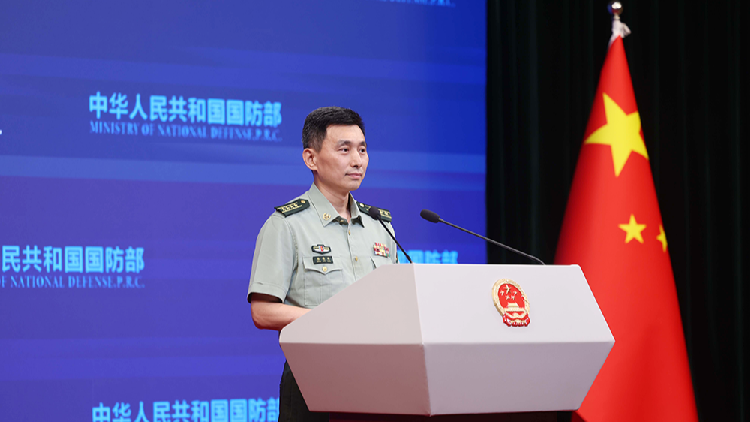Chinese Spokesman Accuses U.S. of Exploiting Shangri-La Dialogue to Foster Disputes
China's Defense Ministry spokesperson Zhang Xiaogang condemns U.S. Defense Secretary Pete Hegseth's critical remarks at the Shangri-La Dialogue, asserting opposition to negative comments about China.

A spokesperson from China’s Ministry of National Defense delivered a strong rebuke on Sunday, criticizing the United States for its conduct at the 22nd Shangri-La Dialogue in Singapore. Zhang Xiaogang, the defense ministry spokesperson, accused the U.S. of using the high-profile security summit as a platform to create discord, provoke confrontation, and further its own strategic interests.
Zhang specifically rejected recent remarks made by U.S. Defense Secretary Pete Hegseth, describing them as deeply rooted in “entrenched hegemonic logic,” as well as employing “bullying tactics and Cold War mentality.” He asserted that these statements not only violate China’s sovereignty and national interests, but also distort China’s policy stances. According to Zhang, such rhetoric disregards the concerted efforts by regional countries to preserve prosperity and stability, and fundamentally diverges from the global pursuit of peace and development. “We express grave dissatisfaction and resolute opposition,” he stated.
Emphasizing the broader impact of American policies, Zhang claimed that the international community can clearly see the unilateral actions taken by the United States. He cited instances where the U.S. has launched tariff and trade wars and imposed what he termed “exorbitant levies” around the world to protect its own interests. He also highlighted the formation of exclusionary coalitions and bloc confrontations, which have fostered unease across numerous nations. Additionally, Zhang pointed to heightened U.S. military deployments in the Asia-Pacific and involvement in other countries’ domestic affairs as sources of escalating regional tensions. He warned that continued unilateralism by the U.S. would ultimately backfire on itself.
Addressing the Taiwan question, Zhang reiterated that Taiwan remains an internal matter for China and criticized the U.S. for making what he called “irresponsible remarks” and attempting to use Taiwan as leverage against Beijing. Zhang reaffirmed the resolve of the Chinese People’s Liberation Army to “resolutely safeguard national sovereignty and territorial integrity,” vowing to thwart any separatist ambitions or foreign interference concerning Taiwan. “Our determination is unwavering, and our capabilities and means are strong and reliable,” he added.
Turning to the South China Sea issue, Zhang asserted that the region is widely recognized as one of the world’s busiest and safest shipping routes. He stressed China’s commitment to resolving disputes through dialogue and consultation with relevant countries, and to defending its territorial claims and maritime rights within legal frameworks. In his view, the U.S. is exacerbating instability in the South China Sea by forging alliances and stirring conflict, a move that constitutes, according to Zhang, “the greatest threat to regional peace and stability.”
Positioning China as a force for regional stability, Zhang maintained that China consistently acts as a guardian and promoter of peace and development in the Asia-Pacific. He pledged that the Chinese military will continue collaborating with neighboring states to resist hegemonic tactics, prevent the importation of geopolitical conflicts into the region, and oppose any actors seeking to generate disorder. He concluded by reiterating China’s commitment to multilateral cooperation and to the vision of a shared future for humanity—aiming to secure enduring peace, stability, and prosperity across the Asia-Pacific.




